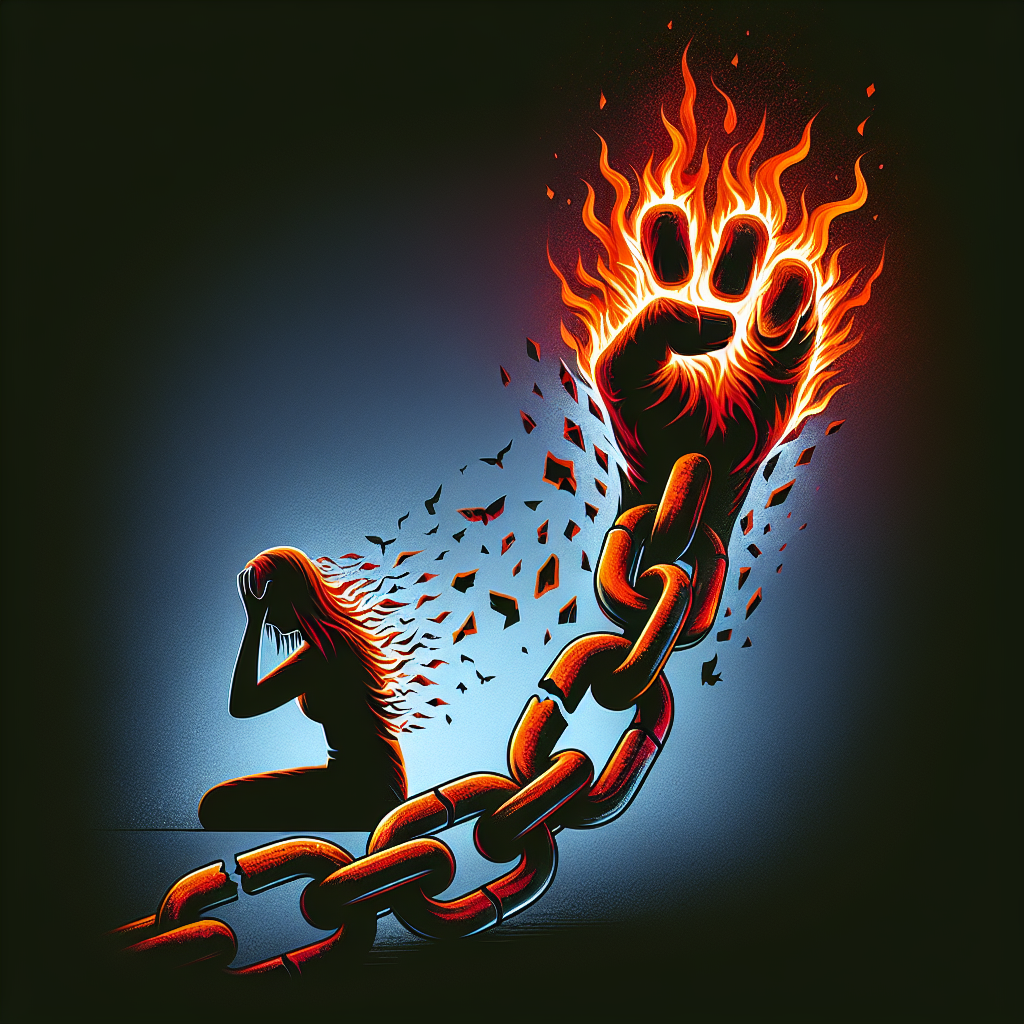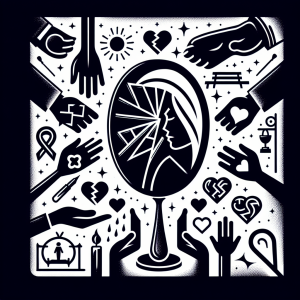Understanding the Complex Interplay: Connecting Domestic Abuse to Mental Well-being
In the realm of mental health and personal safety, few issues cast as long and baleful a shadow as domestic violence. This nefarious problem, which affects millions of individuals around the globe, knows no boundaries of geography, culture, or socioeconomic status. It is a scourge that can infiltrate the life of anyone, often leaving behind a trail of profound psychological trauma. This article aims to elucidate the intricate relationship between instances of domestic abuse and the resultant mental health challenges faced by survivors, shedding light on a topic that necessitates greater public understanding and empathy.
### The Psychological Aftermath of Domestic Abuse
At its core, domestic violence is an egregious breach of an individual’s right to feel safe and secure within their own home. It encompasses a range of behaviors including physical assault, sexual abuse, emotional manipulation, and financial control, each capable of inflicting deep psychological wounds. Survivors often emerge from these harrowing experiences bearing not just the physical scars of their ordeal but enduring mental health issues that can significantly impede their ability to lead fulfilling lives.
### The Spectrum of Mental Health Issues
The aftermath of domestic violence manifests through a spectrum of psychological conditions. Depression and anxiety disorders are among the most prevalent, with survivors frequently reporting feelings of hopelessness, relentless worry, and a profound sense of isolation. Post-Traumatic Stress Disorder (PTSD) also emerges as a critical concern, with individuals reliving their trauma through flashbacks and nightmares, a reality that perpetuates their torment.
Moreover, the experience of domestic abuse can erode self-esteem and foster a pervasive sense of worthlessness. This can severely affect interpersonal relationships and contribute to a cycle of social withdrawal and loneliness. In more severe instances, individuals may resort to substance abuse as a coping mechanism or entertain suicidal thoughts, underscoring the critical need for timely intervention and support.
### The Role of Early Intervention and Support Systems
The pathway to healing for survivors is often long and fraught with obstacles. It underscores the importance of early intervention and the establishment of robust support systems. Access to mental health care, including counseling and therapeutic services, is imperative in facilitating recovery. These interventions aim to equip individuals with coping mechanisms to process their trauma, rebuild their self-esteem, and gradually reclaim their lives.
Community support also plays a pivotal role, offering a network of care that reinforces the survivor’s journey towards healing. Support groups, helplines, and shelters provide safe spaces for individuals to share their experiences and gain strength from the collective resilience of those who have faced similar tribulations.
### The Imperative of Societal Change
Addressing the mental health repercussions of domestic violence requires a concerted societal effort. It necessitates dismantling the stigma surrounding both domestic abuse and mental health challenges, encouraging an environment where survivors feel empowered to seek help without fear of judgment. Furthermore, educational programs aimed at fostering understanding and empathy within communities can play a significant role in preventing domestic violence and supporting those affected.
### Moving Forward: Empowering Survivors
Empowering survivors of domestic violence to overcome the mental health challenges they face is a multifaceted endeavor. It involves ensuring accessible, compassionate, and effective mental health care, fostering community support networks, and advocating for societal change. By acknowledging the intrinsic link between domestic abuse and mental well-being, we pave the way for more informed, empathetic, and proactive approaches to support survivors in their journey towards healing and reclaiming their lives.
### FAQs
**Q: Can witnessing domestic violence have mental health implications?**
A: Yes, witnessing domestic violence, even if one is not the direct victim, can have significant mental health implications, including trauma and increased risk of developing mental health disorders.
**Q: Is it possible to fully recover from the mental health issues caused by domestic violence?**
A: Recovery is a highly individual process and can vary significantly from one person to another. While the impact of domestic violence can be long-lasting, with appropriate support and treatment, individuals can rebuild their lives and find new strength.
**Q: How can I help someone I suspect is experiencing domestic violence?**
A: Offering a non-judgmental ear and validating their feelings can be a powerful form of support. Encourage them to seek professional help and provide resources such as contact information for local shelters, hotlines, and mental health services.
**Q: Are men affected by domestic violence and its mental health consequences?**
A: Yes, men can also be victims of domestic violence and suffer from its mental health repercussions. While women are disproportionately affected, it’s essential to recognize and support men who are in abusive situations.
**Q: What steps can communities take to prevent domestic violence and support survivors?**
A: Communities can foster environments that do not tolerate violence through education, support local shelters and mental health services, and create awareness campaigns that challenge the stigma surrounding domestic violence and mental health.
Understanding the deep-seated connection between domestic violence and mental health issues is crucial in forging pathways to recovery for survivors. By prioritizing empathetic support, accessible treatment, and societal change, we can help mitigate the long-term psychological impact of domestic abuse and champion a future where every individual has the right to lead a life free from violence.



















